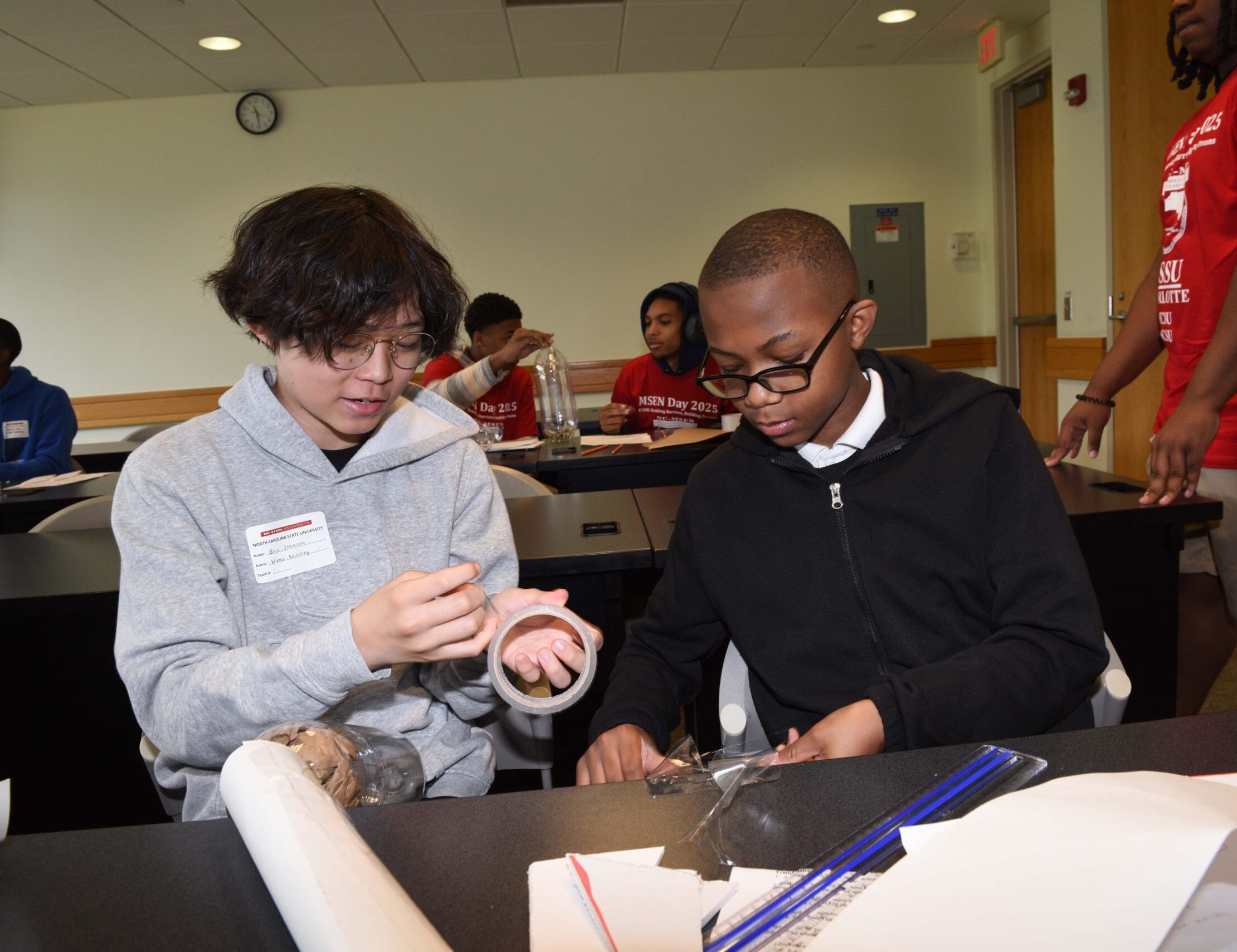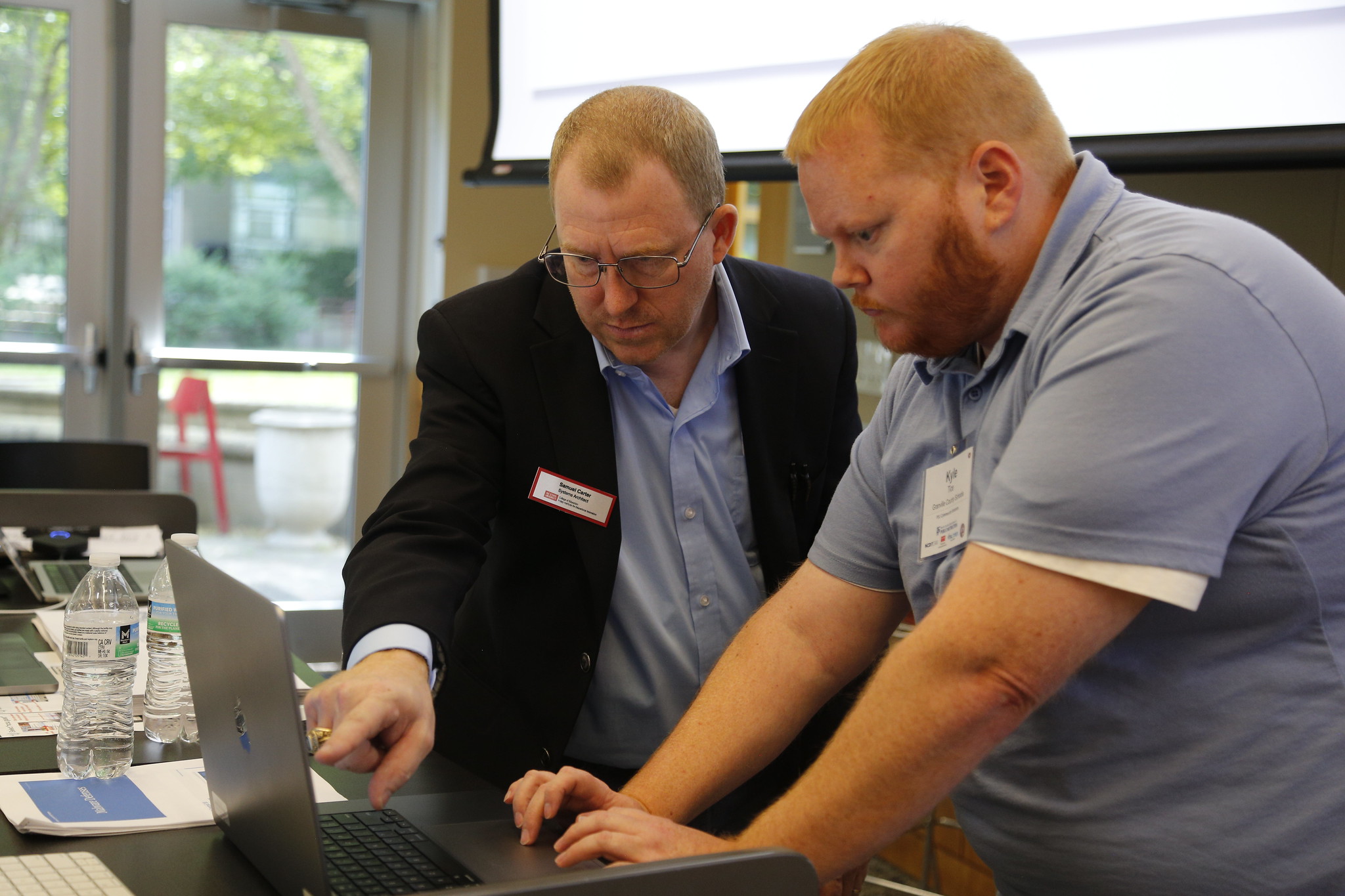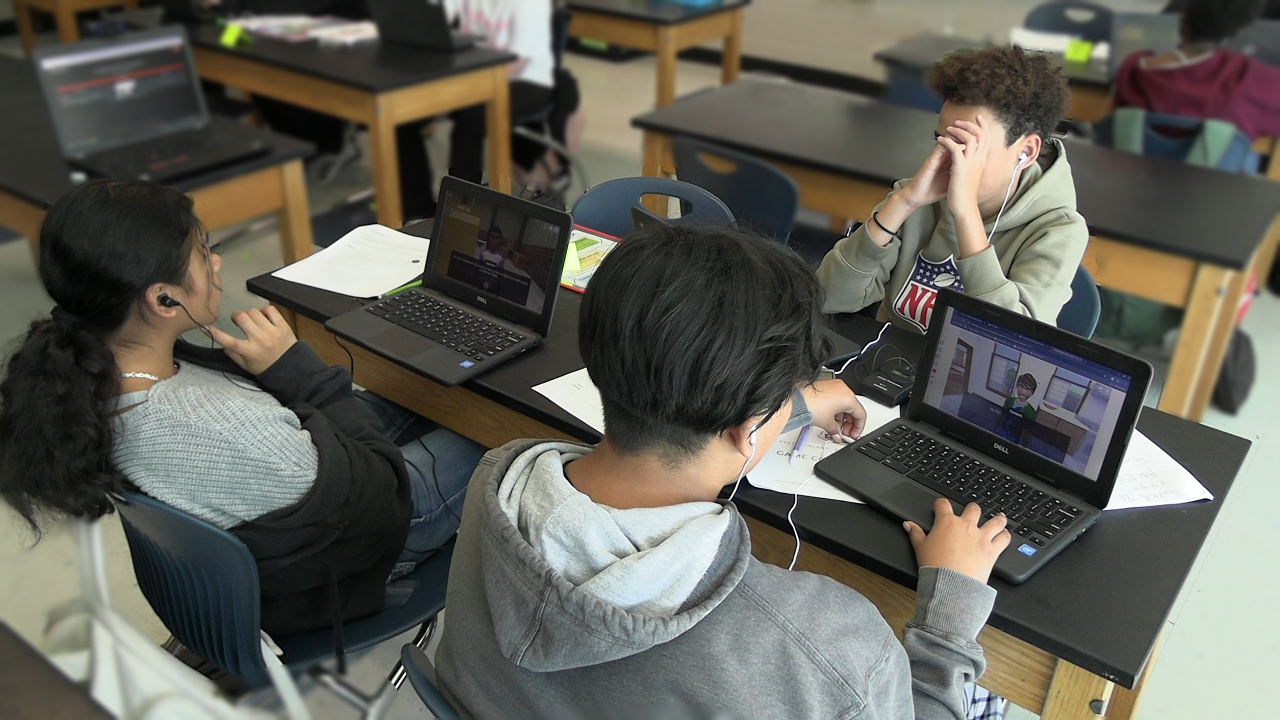AERA Workshop on Learning Analytics Graduate Programs Highlights Need for Curriculum Sharing

Learning Analytics (LA) has emerged over the past two decades as an interdisciplinary field to help leverage new forms of digital data and computational analysis techniques to understand and improve student learning. Recognizing that, higher education has also expanded their programs to include courses in learning and data analytics. During the American Educational Research Association (AERA) Annual Meeting on April 13, faculty from learning analytics graduate programs across the country convened in a working group roundtable to discuss student competencies, curriculum and instructional approaches in order to improve existing programs and guide the increasing number of programs in development.
Friday Institute Interim Executive Director Shaun Kellogg, who leads the Learning Analytics in STEM Education Research (LASER) Institute at the Friday Institute for Educational Innovation and the North Carolina State University Graduate Certificate in Learning Analytics program, facilitated the session, titled “Graduate Programs in Learning Analytics Workshop.”
“Research gets a lot of attention at AERA, and rightly so, but I’m glad the conference organizers saw the value in providing a venue to discuss educational programs like ours that are critical for preparing the next generation of scholars,” said Kellogg. “Even with the brief time we had to talk shop, we learned a lot from each other that I think will enhance the growing number of learning analytics and educational data science programs.”
Presenters also included Ryan Baker, a professor at the University of Pennsylvania; Justin T. Dellinger, co-lead of the Learning Analytics Learning Network and director of the Learning Experience at Texas A&M University; Alyssa Wise, a professor at New York University (NYU); Yasemin Gulbahar, a visiting associate professor at Columbia University; Renzhe Yu, an assistant professor at Columbia University; Julia Rutledge, director of the Master’s in Learning Analytics program at the University of Wisconsin-Madison; and Joshua Rosenberg, an assistant professor of STEM education at the University of Tennessee, Knoxville.
This working group roundtable aimed to convene faculty who are planning or currently implementing learning analytics programs in order to:
- Identify both shared and diverging curriculum components of the various programs existing or emerging, including course content and student competencies;
- Highlight effective (and non-effective) instructional strategies/pedagogy for content delivery and supporting skills with programming tools like R and Python; and,
- Cement a commitment to openly sharing curriculum resources that can be used across programs or for researchers/educators to use outside of learning analytics programs
“I consider the graduate programs in learning analytics that were represented in this session to be among the strongest in the world, and so learning from the coordinators of these programs was an outstanding opportunity for me,” said Rosenberg. “I was gratified to discuss shared challenges and to brainstorm about effective practices and structures for our learning analytics programs.”
The ability to critically evaluate learning analytics, process data and communicate analyses in a way that’s accessible to education practitioners were some of the student competencies discussed during the first part of the roundtable.
“Our students are coming from a really wide variety of professional domains and experiences as well as academic degrees,”said Rutledge during the session. “When we have them work in their collaborative small groups, I think it’s really a rich experience because they’re all applying the content in a variety of different jobs and positions in companies and fields. So, we try to leverage that variety in our curriculum.”
Course structure and student motivation were key to a successful learning analytics program, according to multiple participants in the session. Rutledge said that if instructors don’t structure in time for collaboration, then students won’t do it. She structures her courses by allowing time for reflection, discussion, observation, practice and small group collaboration. Rosenberg said that students need to have a payoff and a connection to the question they’re trying to answer. Kellogg agreed that using their own data was the key to success for students, citing a student who was an elementary school teacher who watched her students play on the playground and recorded their interactions for a week for a network analysis.
“She was really interested in doing this project with her students, so I helped her think about how we structure it, how we do some boundary setting, how we think about data collection,” said Kellogg during the session. “It was really enlightening for her because what she’s seeing on the playground, especially with deep observation, is totally different from what she was seeing and how they’re interacting in the classroom.”
Finally, the group was interested in making the course content more accessible to others through open sourcing, increasing the need for learning analytics programs and adding requirements for data analysis into pre-service education programs. They discussed submitting their course materials and curricula for different conferences, helping school districts build the capacity to process their data and showing edtech companies the value in hiring educational data scientists.
“This was an important first step in building a network for learning analytics programs and our students,” said Rutledge. “It was encouraging to learn how each of our programs supports students in building ethical and equitable analytical practices. I am excited for how the learning analytics field will benefit from our socially—and computationally—responsible graduates.”
- Categories:


